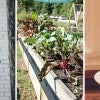
Amid the pandemic, lessons in what we’ve overlooked
Has the COVID-19 crisis made you more aware of things you didn’t properly appreciate before the outbreak? What have you learned new reverence for since life was disrupted?

Amid the pandemic, lessons in what we’ve overlooked
Has the COVID-19 crisis made you more aware of things you didn’t properly appreciate before the outbreak? What have you learned new reverence for since life was disrupted?
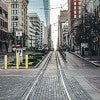
Dear cities: Don’t miss this once-in-a-lifetime opportunity to remake and retake streets
Over the years, more and more of our public space has been given over to cars and congestion while pedestrians, cyclists and others have been squeezed out. One possible silver lining to the COVID-19 pandemic is the chance to give some of that space back.

Update: COVID-19 Registry shows racial disparities in economic impact of pandemic
More than 40% of Houston-area households have lost income as a result of the COVID-19 crisis. And the pandemic appears to be taking a greater economic toll on African American and Hispanic households than white and Asian American households, according to the latest survey results from Rice University’s COVID-19 Registry.
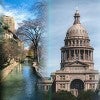
In post-pandemic Texas, the state’s cities will be more important than ever
Some 80% of Texas’ 29 million residents live in large cities or metropolitan areas, which are the economic drivers in the state. If the recovery is going to be successful after the COVID-19 pandemic ends, it’s important that preparations begin now.

In the COVID-19 era, a renewed appreciation of our parks and open spaces
During this time of heightened stress and anxiety, stay-at-home orders and social distancing, the respite provided by simple things like a walk or run in the park has proved to be more important than ever. Let’s not forget that when we reach the other side of this.
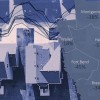
Mobility data shows some staying at home more than others during COVID-19 pandemic
Researchers studying the impact of stay-at-home mandates on the area’s environment and infrastructure share insight into which county populations are limiting their movement — and potential exposure to the coronavirus — more than others.
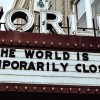
How do we safely reopen cities after the coronavirus pandemic? We have to prepare now.
No, COVID-19 will not be the end of cities. But it will take time, effort and preparation to safely return them to “normal” as soon as possible, says urban studies theorist Richard Florida.
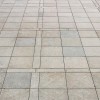
During the pandemic, we can keep our distance while looking after one another
As a stay-at-home order takes effect for residents of Houston and Harris County, the importance of social solidarity and working together for the common good become even more crucial to protecting our most vulnerable neighbors.

Report: Texas moves to No. 39 on list of most aggressive states in combating COVID-19 (update)
The state, which ranks 31st in population density, has moved up to No. 38 in tested cases of COVID-19 per capita — it was previously last. It remains 48th in total public health emergency preparedness funding per capita.

To slow the coronavirus in Houston, we should ‘hunker down’ and hope for a controlled crash landing
An infectious disease expert from Rice University talks about the good, the bad and the future effects of our response to the coronavirus pandemic.
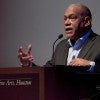
Parks and re-creation: How better green spaces are revitalizing cities
New York City Parks Commissioner Mitchell J. Silver discussed how innovative projects have transformed many of the city’s parks as well the lives of residents.

What if we spent billions to improve access instead of gridlock?
American cities are caught in a cycle that goes something like this: Expand roads to mitigate gridlock, which encourages more people to drive, which produces more congestion, which is addressed by expanding roads, which encourages more people to drive and on it goes. According to a new report, the continual expansion of roads only treats a symptom — congestion — and not the disease — sprawl. But what if we’re focusing on the wrong thing?

A vacant lot in Third Ward is filled with life after chess-park transformation
The “Urban Edge explains …” series explores issues and concepts that are important to urban planning and policy experts. Today, we look at the power of tactical urbanism to demonstrate effective solutions to long-term goals using short-term, inexpensive examples.
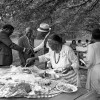
A rush to map freedom colonies before a crucial part of history is lost
For the past six years, Andrea Roberts has been dispelling misconceptions about the history of African American placemaking in Texas through her Texas Freedom Colonies Project.
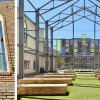
Parks and public spaces: How Houston ranks and some of our favorites
If the Trust for Public Land’s annual ParkScore rankings mean anything to you, Houston’s steady slide over the past seven years may surprise, concern, frustrate or alarm you. The nonprofit’s evaluation of “park access and quality” — based on an assessment of access, investment, acreage and amenities — puts Houston at No. 85 among the nation’s 100 largest cities. Overall, the city’s parks get a score of 35.3.
Rice University
Kraft Hall
6100 Main Street, Suite 305
Houston, TX 77005-1892